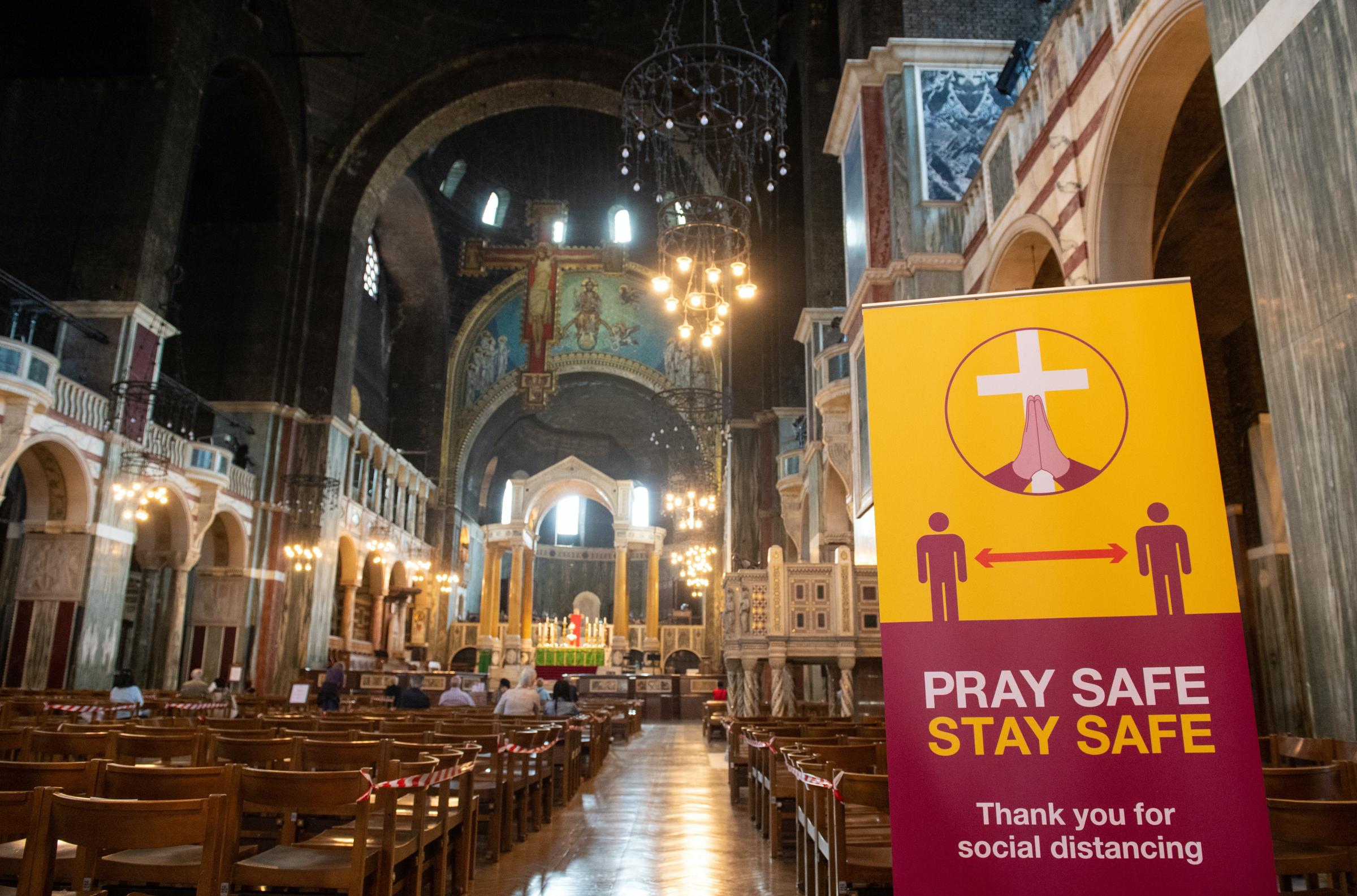Catholic churches across England were permitted to reopen on Monday for the first time since March 23, but most remained closed due to strict health and safety guidelines.
The country’s Catholic bishops have required that churches reopening for private prayer must first install hand sanitising facilities and ensure that a minimum of two trained stewards are on duty during opening hours.
These requirements have forced many Catholic churches to limit their opening hours and often to delay reopening altogether.
Holy Trinity Church in Brook Green, for example, say that they must continue to wait because “stewarding and hygienic procedures need to be in place” before reopening. “We at Holy Trinity are still waiting for the sanitising items we have ordered from suppliers to arrive,” they said. A Catholic Herald survey of around 100 churches from across the country found that the vast majority were similarly delaying reopenings.
Last week, Cardinal Vincent Nichols advised churches to reopen only “when those responsible for the church, the priest and his team, know that they can do this properly.”
The proper steps required of Catholic churches were specified earlier this month in the bishops’ detailed document on reopening for individual prayer.
This document was drawn up in compliance with UK Government principles, which require churches during the pandemic to help shield high-risk groups, increase cleaning, facilitate 2-metre social distancing, provide hand sanitizer, encourage the use of face coverings and request parents to manage their children.
In consultation with their own public health advisors, the Catholic bishops have required parishes to prepare for reopening by assembling a team of stewards, securing sufficient supplies of sanitiser and cleaning equipment, removing all multiple-use books and pamphlets, putting up health and safety signs, placing 2-metre markings on church floors and rearranging seating to ensure social distancing.
During opening hours, the bishops require churches to provide at least two stewards to ensure social distancing is maintained, which may include limiting the number of people entering the church. The bishops also specify that the “church must be cleaned fully at least once a day” when it has opened, with volunteers also asked to regularly wipe down “touch points”, such as door handles and collection boxes.
The guidance dictates that toilet facilities “should remain closed to prevent any risk of transmission of infection.” Some have voiced concern that this measure unfairly limits peoples’ access to churches during reopening. Sarah Oakton, a disabled woman calling for a change to this rule, told the Catholic Herald that her city’s Catholic Cathedral had “refused to open the toilet” for her, despite an accompanying carer being able to provide all the official city council paperwork and access permissions. “I’m hitting my head against a brick wall,” she said. “It seems if you are disabled the church doesn’t want to know.”
In contrast, the Church of England has no universal requirements on closing toilets, though it suggests that “a toilet could be made available for emergencies, but not generally open or advertised.” The Church of England also does not specify that stewards must be present to monitor churches when open. Their advice simply states that there is “no public health need to do this and the government guidance does not require it, though the decision will need to be based on your own local situation and risk assessment.”
Many Catholic churches, however, as part of their local risk assessment, have introduced additional rules to increase health and safety. Holy Trinity Church, Brook Green, like many others, have specified that they will require three stewards on duty before reopening, since they believe it is necessary to have volunteers at the “entrance and exit of the church, and in the church itself.” Meanwhile, the Catholic Church of Mary Immaculate and St Gregory the Great in Barnet, which opens today, specifies that the first half hour of opening each day is for over 70s only. The parish guidance informs over 70s that they “can enter at any time, but this time has been set aside for your own safety so please use this half-hour if you can.”
Source: Catholic Herald

